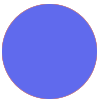Hi y'all.
I often have this question come up and I'm never quite sure why/when a client/zap should switch from parser by Zapier to Mailparser.io. I know the answer generally is when the templates of the emails are more complicated.
But what specifically does that mean?
Aka what are the "if this" statements that help you determine when you need to plan on using mailparser.io versus the native parser by Zapier?





